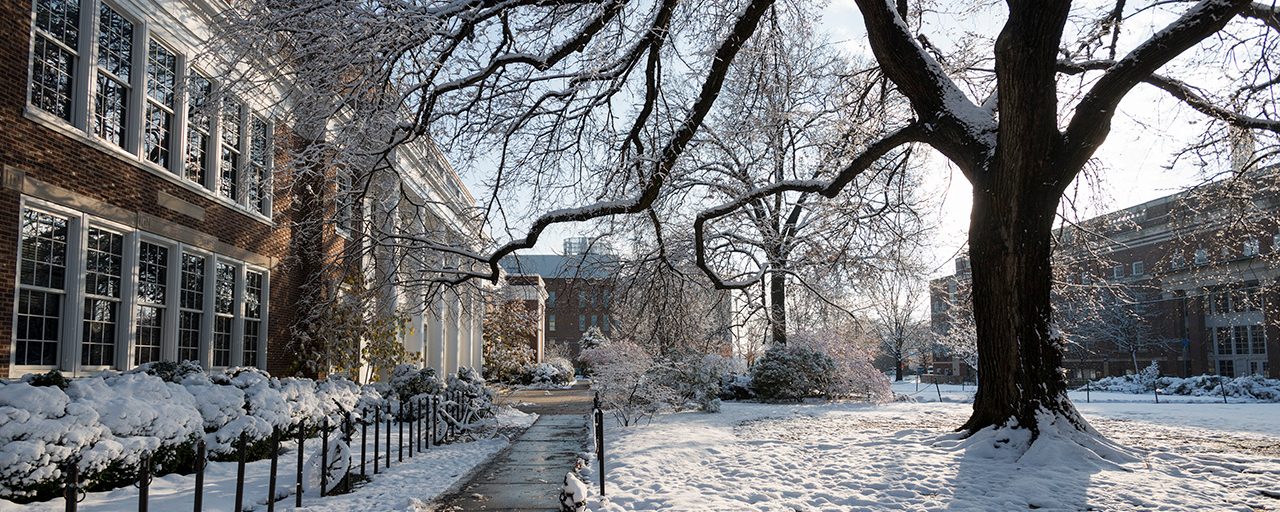
Winter Session

The University of Delaware offers shortened sessions in winter and summer that allow students to earn credits through concentrated courses, providing a way to stay on track (or get ahead) for graduation or take courses in subjects that interest them but may be outside their general course of study.
The College of Earth, Ocean and Environment offers a number of courses during these sessions that provide opportunities to study abroad, learn online, in some cases meet major requirements or fulfill breadth requirements for students in other majors across the university.
Winter session courses
GEOL105 Geological Hazards and Their Human Impact (3 credits)
Geological processes and events that adversely affect humans and civilization. Methods for predicting and dealing with geological hazards. May be taken with a 1 credit lab, GEOL115. Fulfills a University Breadth Requirement for Math, Natural Sciences and Technology.
GEOL108 Volcanoes and Earthquakes (3 credits) — Online Course
Violent geologic activity as illustrated by volcanoes and earthquakes. The nature, causes and origins of volcanic and earthquake activity, their interactions with humans and their potential control. Fulfills a University Breadth Requirement for Math, Natural Sciences and Technology.
GEOL115 Geological Hazards Laboratory (1 credit)
Laboratory investigation of environmental geological processes and their impact on society: earthquakes, volcanoes, coastal hazards, rivers and streams, groundwater. Identification of earth materials and study of earth processes using topographical, geological and tectonic maps. Note: Must be taken as a corequisite with GEOL105
GEOG102 Human Geography (3 credits)
Examination of the spatial distribution of human activities worldwide. Particular attention is given to those factors and processes that have led to spatial inequality and locational conflict from the international scale to the neighborhood scale. Fulfills a University Breadth Requirement for Social and Behavioral Sciences, as well as the Multi-cultural Course Requirement.
GEOG271 Introduction to Geographic Data Analysis (3 credits)
A survey of computational, statistical, and graphical techniques used in scientific data analysis with particular emphasis on the special nature of geographic and spatial data. Includes scripting language programming. Fulfills a University Breadth Requirement for Math, Natural Sciences and Technology.
GEOG372 Introduction to GIS (3 credits)
Fundamental geographic concepts and principles necessary to effectively use GIS to examine geographic problems. Hands-on training is provided in the use of professional GIS software in the context of collecting, managing, processing, analysis and presenting geographic data. Emphases is placed on the nature of spatial data, modeling techniques, spatial analysis and cartographic design.
MAST267 Secret Lives of Sea Monsters (3 credits)
The course will provide an overview of evolution, biology, ecology, and conservation of large marine predator species (marine mammals, reptiles, fishes, sharks), and the relationship that humanity has had with these species, with a focus on hands-on, experiential learning. Note: Two required 10-hour field trips - 1/20/2023 to Smithsonian Museums and on 1/27/2023 to Lewes Historical Museums
View current sections of MAST267
MAST382 Introduction to Ocean Sciences (3 credits) — Online Course
This is a quantitative introduction to sub-fields within ocean sciences including marine geology, marine chemistry, ocean physics, coastal oceanography and marine biology. An introduction to the major for Marine Sciences and an in-depth overview for those with a minor or concentration in Marine Science.
Prerequisites: CHEM103/CHEM133, CHEM107 or CHEM111.
